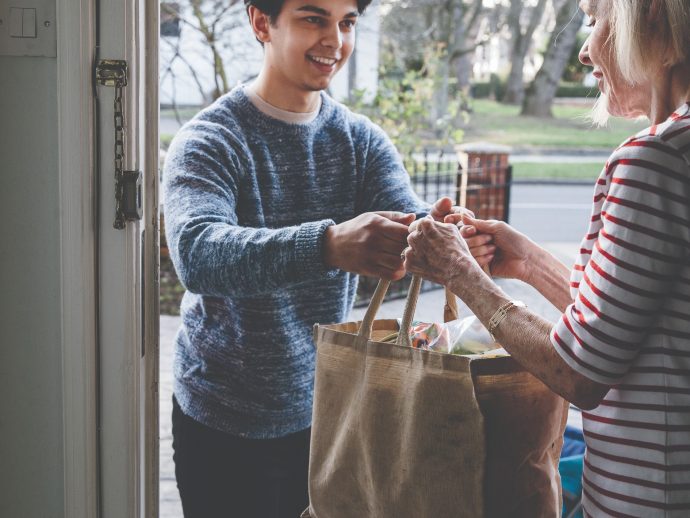
At the beginning of the COVID-19 pandemic, AnnMarie Aase heard of a “caremongering” movement happening, with volunteers helping seniors and people at risk. She created the Facebook page, which grew to thousands of members.
“Through team effort, we now have a website to address individual needs and offerings, a telephone hotline, information on local resources, and meal deliveries,” says Aase. It’s a group powered by people with one foundational commonality—kindness.
Kindness as a journey
When parents model kindness, children are inclined to follow. In a recent study of children under six, researchers observed that being generous made them feel calmer, which helps reinforce kind behavior.
It’s never too late to start on the journey though, according to certified life coach Jocelyn Gordon. Just one week of kindness can leave you happier and more grateful.
Being kind also helps people with social anxiety to have better relationships and to be more inclined to connect. “Connection is a key ingredient in happiness,” says Gordon. “When we feel connected to others, more empathic, more aware of others’ experiences, we feel more enriched.”
Your health on kindness
Being there for others comes with its own rewards: kindness toward others boosts your well-being and happiness levels. Studies show that volunteers experience a boost in their mental health; they feel happier and more satisfied with their lives.
And volunteering later in life has been shown to boost cognitive function and slow cognitive decline.
Our brains release oxytocin (known as the “love hormone”) when we’re happy, and we become happy when we show kindness toward others. As a bonus, oxytocin further boosts kindness and generosity.
Oxytocin can help reduce blood pressure and risk of cardiovascular disease. It inhibits inflammation, promotes wound healing, and reduces the risk of immune disorders caused by stress. Your immune system benefits from frequent doses of the happiness hormone too.
Oxytocin is not the only brain chemical released through kindness. Dopamine, the pleasure neurotransmitter, also floods our bodies, causing a feel-good state called “helper’s high.”
Dopamine can also affect immune cells and regulate normal immunity. Simply put, kindness strengthens your own immune system!
Where does kindness start?
We can express kindness in a multitude of different ways. The most important thing to remember, according to Gordon, is to “be kind, while not expecting anything in return.” She adds, “Just make whatever gesture it is that feels good and right for you.”
Here are just a few ideas—some small acts of kindness:
- Carry a few nonperishable ready-to-eat food items to offer to someone in need.
- Cook a meal for an elderly neighbor or young family.
- Reach out to people you know who may be struggling.
- Make it a habit to ask store clerks about their day; everyone should know they matter.
- Pick up and discard litter.
- Remind yourself not to judge; smile, without judgment, instead.
- Remember that before we can be kind to others, we have to learn to be kind to ourselves.
Written by Daniela Ginta, MSc

